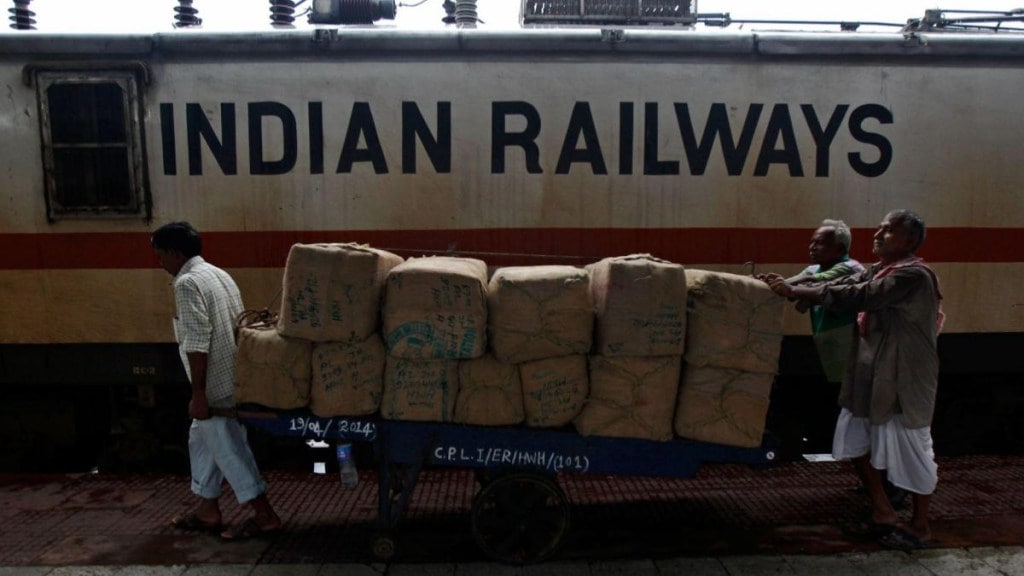The Dedicated Freight Corridor Corporation of India Ltd (DFCCIL) is in talks with over a dozen e-commerce and logistics companies such as Amazon, Meesho, Delhivery, Blue Dart Express, Shiprocket for leasing out the newly built infrastructure for cargo transportation.
“We have given presentations to a list of companies engaged in the logistics business, and informed them about the benefits of the western dedicated freight corridor (WDFC). We have received positive response from the companies,” said Shobhit Bhatnagar, director (operations & business development) at DFCCIL.
DFCCIL is running a trial service with Amazon since August last year to ship customer packages through the 659-km freight route between Rewari and Palanpur that connects the industrial belts of Haryana and Gujarat.
“We are running a service for small cargos with Amazon. It has one coach with a capacity of 18 tonnes per day. This is attached to the trucks on train service. We will be adding 7 more coaches in a month or so, and eventually ramp up the capacity to 20 coaches per day in both directions. We want to keep the customers engaged,” said Bhatnagar. He added that the demand will gather pace as soon as the last stretch between Saphale and JNPT (on WDFC) is commissioned by June next year.
While the eastern dedicated freight corridor (EDFC) has been fully functional since last month, a 109-km stretch on WDFC is still under construction.
“This section is crucial because it will provide direct connectivity between Mumbai and Delhi. Many of the companies that we have pitched to are waiting for this final piece to come online. Meanwhile, we are developing facilities, testing software and getting the basic arrangements done,” he said.
DFCCIL claims that WDFC will drastically bring down the transportation time and logistics costs for these entities. For instance, on WDFC, the transportation time of container trains from ports of Western India to Delhi NCR has come down by nearly 50%. This is due to the higher speeds (50-60 kmph) at which trains are operating at both corridors as compared to an average speed of 25 kmph on the regular railways tracks.
Email queries sent to Delhivery, Meesho and Blue Dart didn’t elicit any response.
Experts said that the companies will take assess the pros and cons of shifting their cargo to DFC. “In case of bulk goods movement, railways is cheaper than other modes. Even though logistics companies have gotten used to the roads for deliveries, they would not hesitate in shifting to railways if the economics is right,” said Harminder Sahni, founder & MD of Wazir Advisors.
Though some experts remain sceptical. “These companies already have well-established transportation network. They wont shift so easily just because railways is now offering them first- or middle-mile connectivity,” said a logistics sector analyst.
